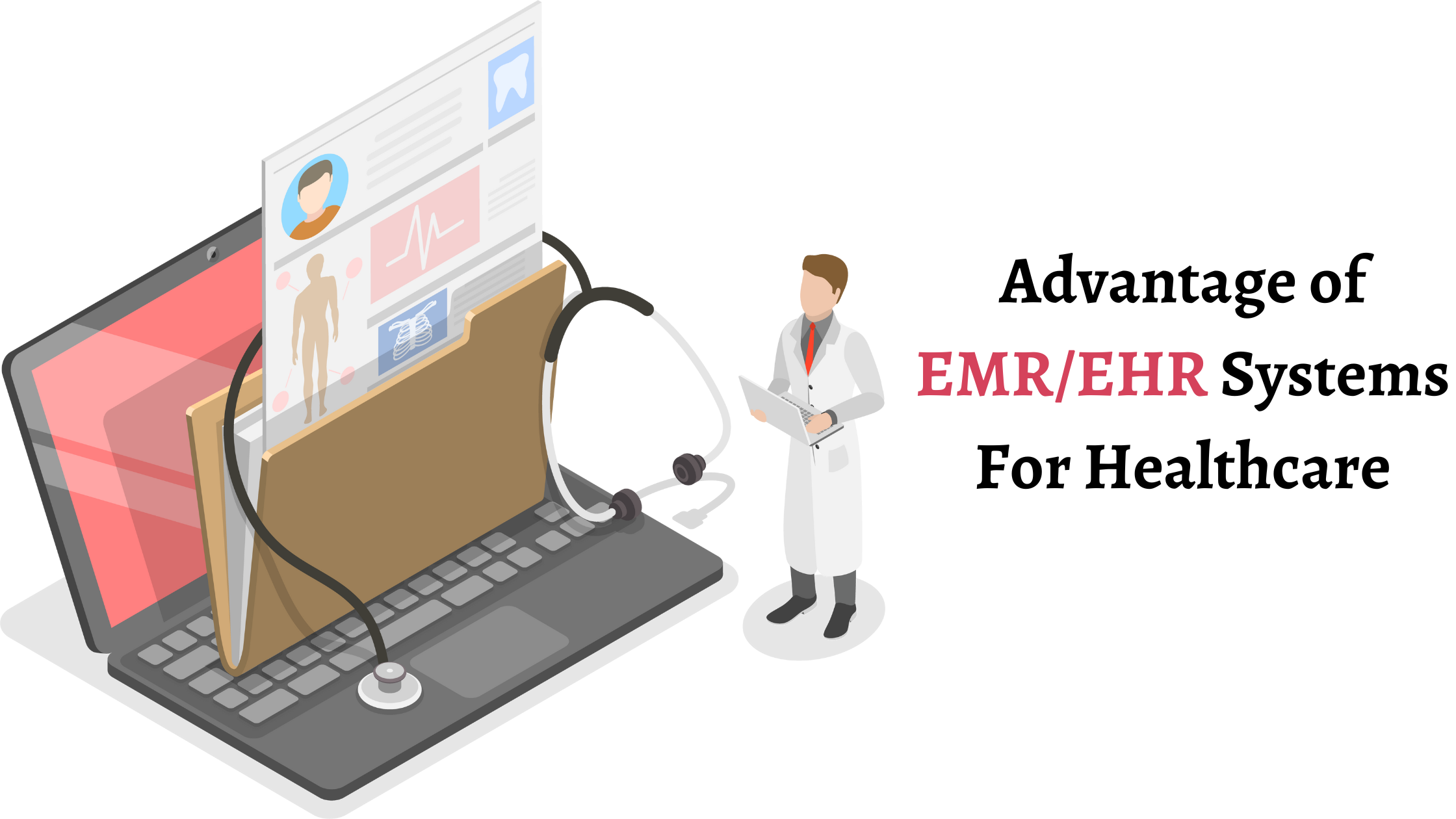
In short, technology makes life very easy and convenient. Today, we have different types of tech solutions to revolutionize almost every aspect of our lives, with healthcare not being an exception. Healthcare transformation in the digital context ensures quality services to patients and doctors. According to McKinsey, digital innovation will expand the valuation of the healthcare sector by 350 to 410 billion dollars by 2025.
Over the last ten years, unprecedented evolution has been witnessed in the health sector’s EMR and EHR software development. According to the National Electronic Health Records Survey, nearly 88.2% of office-based physicians use any EMR/EHR system, while almost 77.8% use certified EMR/EHR. These advanced technologies provide medical professionals and patients with unmatched access to detailed medical information to enable informed decisions and quick and efficient healthcare delivery with just a few taps.
So, not to make too much more of it, let’s step into the nitty-gritty details of EMR/EHR development while untangling what EMR and EHR systems for healthcare and the benefits they will bring.
What is EHR Software Development?
EHRs, or Electronic Health Records, are automated patient charts that compose all patient data, including ailments, medical issues, and medications. They are a real-time database that merges patient details from numerous sources, including hospitals, clinics, laboratories, apothecaries, and additional healthcare supporters. This allows the authorized user to easily access the required and accurate data.
EHRs may retain clinical information and functionalities like patient portals, telemedicine, and population health management tools. Furthermore, they sustain continuity of care, conform care among different providers, and enable patients to be more engaged in their care process.
Advantages of EHR Software Development
Access to a patient’s medical history benefits healthcare professionals in various forms. Let’s explore the diverse benefits of EHR systems for healthcare:
-
Quality Care
EHR allows the immediate availability of patient information, implying more efficient care. Caregivers can deliver better treatments, the quality of medical services doctors offer improves, and support elements prove helpful in treatment efficiency. Moreover, the patient now has access to his healthcare data, allowing access to past medical data, like a blood test report or any radiology result, prescriptions, diagnostics, etc.
-
Enhanced Coordination and Collaboration
By providing real-time access to patient data, these systems sustain care coordination and cooperation among healthcare providers, simplifying workflows across diverse care grounds and specialties.
-
Comprehensive View of Patient Data
EHR software development consolidates all patient data into a centralized electronic repository, which ensures the availability of exhaustive and up-to-date facts for healthcare providers. This broad panorama of the patient leads to more holistic and cooperative care, reduces treatment errors, and expands treatment efficacy.
What is EMR Software?
Electronic medical records (EMRs) are a system of digitally organizing patient data using specially designed software. They are the digital counterpart of hard copy data files, which document general details about the patient, like their medical history and treatment at the clinic throughout their visitations. EMRs are named as they collect data as and when it is collected by the doctor and refer to it during the visitation. This is a fast method for data collection and referral.
Advantages of EMR Software Development
Electronic medical records have transformed the work of conventional healthcare service providers. They benefit patients and hospitals, so let’s examine them.
-
Improving Practise
Electronic medical records are helpful in patient care and in improving the quality of work by family physicians. With expanding medical horizons, more information needs to be incorporated by family physicians. Family physicians can only know some things. After all, they are human. This is where data systems reach. Electronic medical records are designed to improve access to information and relationships, effectively transforming how physicians conduct their practice.
-
Financial Benefits
Implementing electronic medical records in your practice can effectively decrease general expenditures. According to most sources, including the American Journal of Medicine research publication, you can get a payback on your money for choosing EMR systems, not EHR systems for healthcare. This resulted in cost cuts for drug expenditures, more accessible and faster recording and reporting of billing services, proper radiologic diagnostics service, and fewer bill errors.
-
Better Patient Care
Using the best EMRs at the practice improves the quality of patient care and increases safety. The system allows you to prescribe and place an order for your patient and check whether another doctor has given that patient the same medicine.
Conclusion
The transition from paper record-keeping to digital applications has become the lifeline for healthcare organizations looking to improve efficiency, quality patient care, and streamline operations in the healthcare industry. EMR and EHR software development with unique functionalities and associated benefits is spearheading such a transformation. However, developing scalable and secure EMR and EHR software needs strategic collaboration with the most experienced healthcare software development company, which can meet the requirements of healthcare sectors.